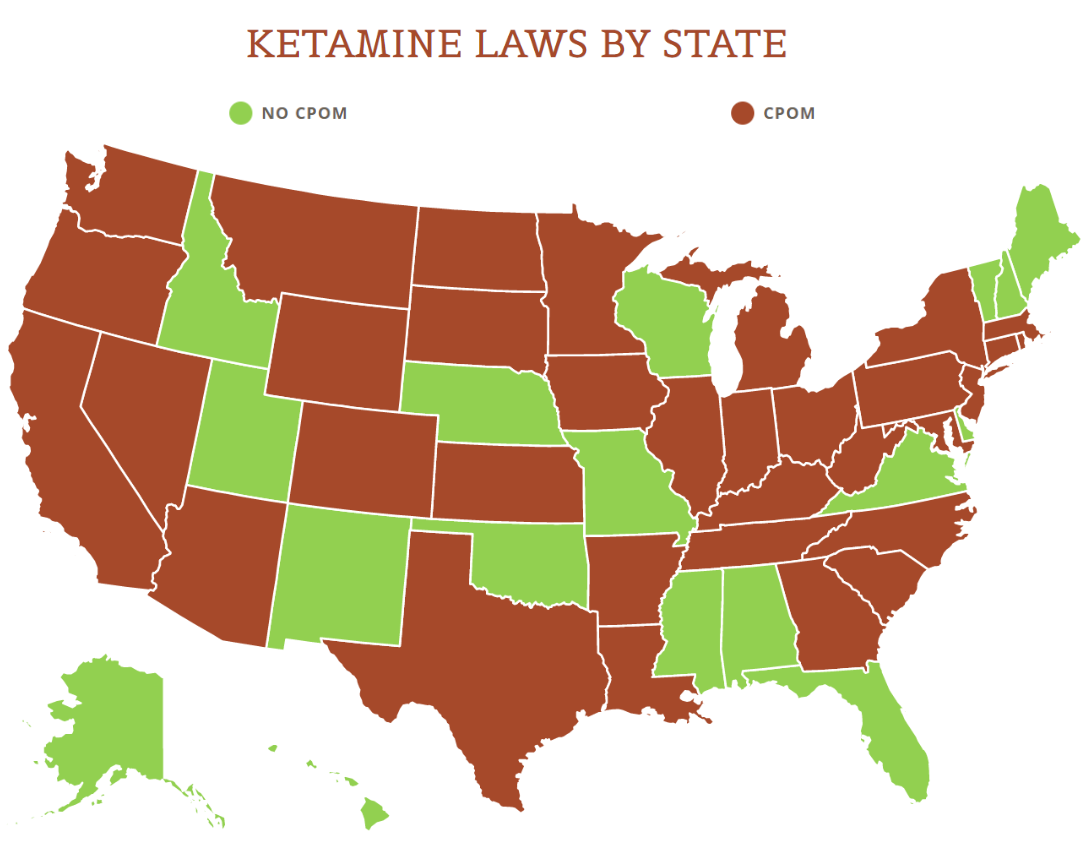Ketamine telehealth just got a big lifeline. On April 12, 2022, the Department of Health and Human Services (HHS) renewed its determination that a public health emergency (PHE) exists due to COVID-19. Obviously, this has been a hugely controversial move even if the renewal is only good for 90 days. This 90 day extension is very good for the ketamine telehealth industry, as we’ll examine today.
Ketamine telehealth basics
If you’re new to the subject, I suggest you check out this post we wrote in 2021.If you’ve seen a doctor since COVID-19 started, chances are it was via telehealth. That’s because states across the country either already allowed telehealth or made their rules more flexible during the pandemic.
In California, where I’m licensed, the relevant law defines telehealth as:
“[T]he mode of delivering health care services and public health via information and communication technologies to facilitate the diagnosis, consultation, treatment, education, care management, and self-management of a patient’s health care. Telehealth facilitates patient self-management and caregiver support for patients and includes synchronous interactions and asynchronous store and forward transfer.”
The really thorny issues arise for ketamine telehealth services during the pandemic.
View the US Map of Ketamine Legality
Ketamine telehealth and the in-person evaluation
The Ryan Haight Online Pharmacy Consumer Protection Act of 2008 (“Ryan Haight Act”) is a federal law that tamped down on online drug trafficking. Relevant here, the Ryan Haight Act generally requires physicians to have at least one prior in-person medical evaluation with a patient before prescribing controlled substances via telehealth. In other words, before a physician can prescribe a drug like ketamine via telehealth, the physician must have at least evaluated that person once in person.
When HHS first declared there was a PHE in 2020, the Drug Enforcement Administration (DEA) essentially suspended the Ryan Haight Act’s prior in-person medical evaluation requirement. In a Q&A on its website, DEA notes:
[A]s of March 16, 2020, and continuing for as long as the Secretary’s designation of a public health emergency remains in effect, DEA-registered practitioners in all areas of the United States may issue prescriptions for all schedule II-V controlled substances to patients for whom they have not conducted an in-person medical evaluation, provided all of the following conditions are met:
-
- The prescription is issued for a legitimate medical purpose by a practitioner acting in the usual course of his/her professional practice;
- The telemedicine communication is conducted using an audio-visual, real-time, two-way interactive communication system; and
- The practitioner is acting in accordance with applicable Federal and State laws.
Since March 2020, the ketamine telehealth industry has taken off. Many physicians expanded services to patients with whom they have had no prior in-person medical evaluation.
The PHE renewal and ketamine telehealth
Before HHS renewed the PHE, there was a great deal of uncertainty as to what would happen if it expired. For example, some states don’t have a prior in-person medical evaluation requirement and industry participants were unclear if they could operate in those states. It looks like the answer would have been “no,” as provisions of the Ryan Haight Act codified in the Controlled Substances Act appear to preempt conflicting state laws. Whether or not preemption will be an issue, that can got kicked down the road for another 90 days.
What’s next for ketamine telehealth
It looks like the status quo will remain until July 2022, though it could go longer if HHS renews the PHE declaration again. This seems very unlikely to happen for political reasons (we have an election in November after all!) and the fact that the virus is probably not going to spread as much over the summer. HHS promised to give at least 60 days notice before terminating the PHE declaration, so we could have a specific wind-down period coming up very soon.
That all said, there’s a huge effort going on to keep telehealth alive. In March 2022, a number important medical organizations wrote to HHS and DEA requesting that the agencies work together to remove the prior in-person requirement permanently. In April 2022, Senators Rob Portman (Republican) and Sheldon Whitehouse (Democrat) sent a similar bipartisan letter to the agencies. Hopefully their pressure campaigns work – again, it is an election year so maybe we’ll see some progress.


























